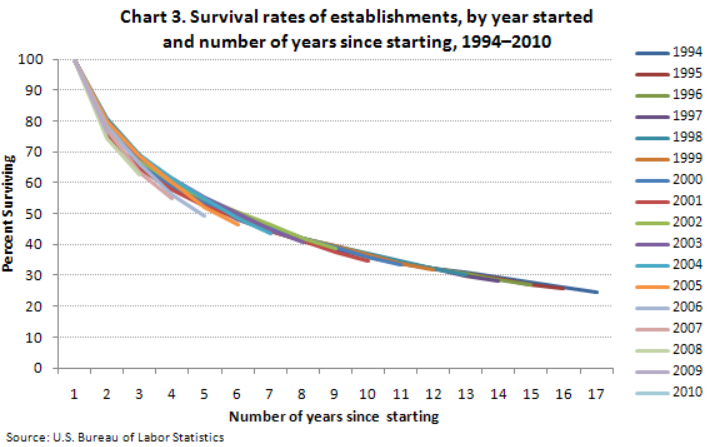
When you approach potential investors to invest in your new company, you should avoid certain expressions. They are traps that make you look weak or dig a hole so deep that you’ll have a difficult time extricating yourself.
Here are eight examples of things you should never say to an investor:
-
“I have no competitors.”
Everybody has competition, even if they offer a substitute product. A sophisticated investor will be turned off immediately if you imply you have no competition. Every startup launches because the founder has thought of something new. It is either:
a) a new product or service, or
b) a new market for an existing product or service, or
c) a new way to deliver an existing product or service.But just because you have thought of something new doesn’t mean you have no competition. You provide products and services as solutions to customers’ problems, needs or pains. Ask yourself, “How do people satisfy those issues currently?” Even if the answer is “They don’t,” then the status quo is competition!
Let’s look at some examples:
A new 3rd generation canine cancer-fighting drug. The competition includes: (a) less effective 2nd generation cancer-fighting drug, (b) not treating the dog (could be cost effective), or (c) pain killers for the dog to enhance quality of life.
The first online gourmet recipe ingredient store. The competition includes: (a) general on-line merchandisers like Amazon, and (b) storefront sellers of gourmet food.
The first allergy clinic franchise embedded inside of physician offices. The competition includes: (a) standalone allergy clinics, (b) allergists, and (c) physician assistants and nurse practitioners specializing in allergies.
The first online bookstore (i.e., Amazon). The competition includes all the brick and mortar bookstores.
Bottom line: just because you are the “first” does not mean you have no competition.
-
“All I need is your money; not your opinions.”
Investors usually consider their business acumen to be of considerable value to portfolio companies. When you make a statement like this—or imply it through your actions—you will alienate the investors sufficiently and they will not invest.
-
“My time is worth just as much as your money.”
During an investor pitch, investors will often ask, “How much money have you raised to date?” They want to know how much cash has been invested in the company so far. All founders devote enormous hours in birthing their companies, but labor hours just don’t count.
Yes, you can (and should) offer to work for no cash compensation (this could encourage investors to invest). You can even suggest that you will accept options in lieu of such compensation. This is all good. But don’t go into a monologue explaining how your time is worth $100,000 per year, so you have thus far invested $100,000 into the company by working for a year without salary.
-
“I will guarantee you an X% return on your investment.”
“Houston, we have a problem!” You cannot guarantee anything to your investors. You are selling them securities in return for their payment and the terms of this transaction are spelled out in a written subscription agreement.
When you state that you “guarantee” such a return, you are inviting a class action law suit from investors if such a return is not delivered. Do not do this! And the limited liability of the corporation will likely not protect you as an individual (or your personal assets) from claims by the investors.
-
“This is a risk free investment.”
By their very nature, startups are risky. The Business Employment Dynamics chart, compiled by the U.S. Bureau of Labor Statistics, below illustrates the survival rates for startup companies, and emphasizes that the rates have been the same regardless of the year they were started. Notice that only 50% of companies survive for 5 years or more.

But even when ignoring the data, making such a statement is foolhardy. You have an obligation, legally and ethically, to potential investors which will require you understand and spell out all the risks involved in investing in your startup. Your attorneys, when they draft your subscription agreements, will insist on including a clause that spells out the likelihood of total loss of the investment. -
“All I have to do is build my product and the customers will come.”
This is a classic statement made by engineers without any marketing savvy. By saying it, investors will know you are a geek. Only three ways exist to create revenue:
a) You can “buy” a customer. That is, you can spend resources (usually money) to raise awareness of your product, you can pull or push leads to you, and you can spend more resources to convert those leads into customers;
b) You can convince existing customers to buy more, or buy more often, or not stop being your customer; and
c) You can encourage existing customers to convert non-customers to become customers.
That’s it! Nowhere in this list is “Build my product and customers will come.” Creating and growing revenue takes work. Plain and simple. Investors know that. If you don’t know that, you will be seen as naïve, not street smart.
-
“We’re almost out of cash.”
The timing associated with raising capital is always a challenge. If you wait too long (e.g., you get close to running out of cash), less respectable investors could take advantage of your situation by delaying their decision to invest until you are desperate. Then you may end up being forced to accept less-than-ideal terms.
On the other hand, if you solicit investments too early, company valuations might be lower than you would like, and you may end up having to sell a larger percentage of the company to raise the necessary cash. No perfect answer exists, but unless you are about to hit a major valuation-changing milestone, I would err on the side of too-early rather than too-late.
Whatever you do, don’t ever suggest to an investor that you are desperate for cash; that will invite even scrupulous investors to make lower offers. The best advice is this: manage your company so you are never desperate for cash.
-
“The market is so huge; all we need to do is capture 1/10 of 1% of it.”
This might sound impressive to you, but it sounds ignorant to a seasoned investor. Investors want to invest in market leaders; they want you to have a large percent of some market.
Market leaders lead. Market laggards lag. Successful startups first focus on penetration of relatively narrow vertical markets; it is called the “rifle shot.” Such an approach enables you to target your desired audience with a marketing campaign designed specifically to their particular pains.
Bragging about a “huge market” and the sufficiency of a tiny capture to “make millions” demonstrates that you don’t understand the dynamics of focusing. It sounds like you are going to take the “shot gun” approach, one that usually results in failure because of overly broad messaging.
Investors are much better at negotiations than you are; after all, they do it over and over again, and you do it rarely. Avoid these expressions by understanding your business idea intimately and all the levers that will influence its success. When you can confidently talk about those to investors, you will be taken seriously.
This article has been edited and condensed.
Dr. Al Davis has published 100+ articles in journals, conferences and trade press, and lectured 2,000+ times in 28 countries. He is the author of 6 books, including the latest, Will Your New Start Up Make Money? He is the co-founder and CEO of Offtoa, Inc., an Internet company that assists entrepreneurs in crafting their business strategies to optimize financial return for themselves and their investors. Dr. Davis has also founded or co-founded five other startups, including a software business acquired by IBM in 2003 and a company that went public in 1995, later acquired by Titan in 2001, and subsequently acquired by L-3 Communications in 2003. Not all of his ventures have been so successful which allows him to be candid and knowledgeable about the highs and lows of being an entrepreneur. Connect with @Offtoa on Twitter.
© YFS Magazine. All Rights Reserved. Copying prohibited. All material is protected by U.S. and international copyright laws. Unauthorized reproduction or distribution of this material is prohibited. Sharing of this material under Attribution-NonCommercial-NoDerivatives 4.0 International terms, listed here, is permitted.





